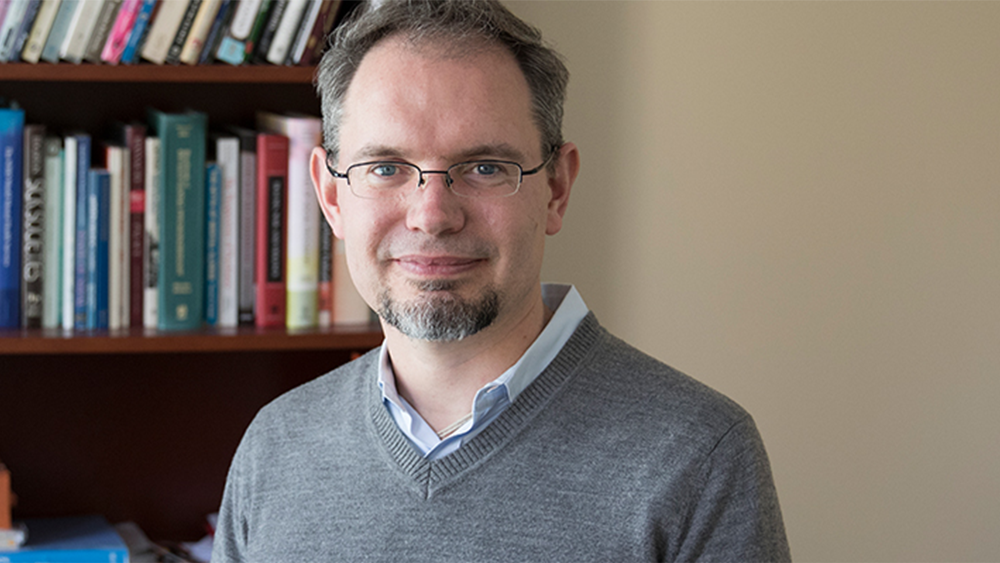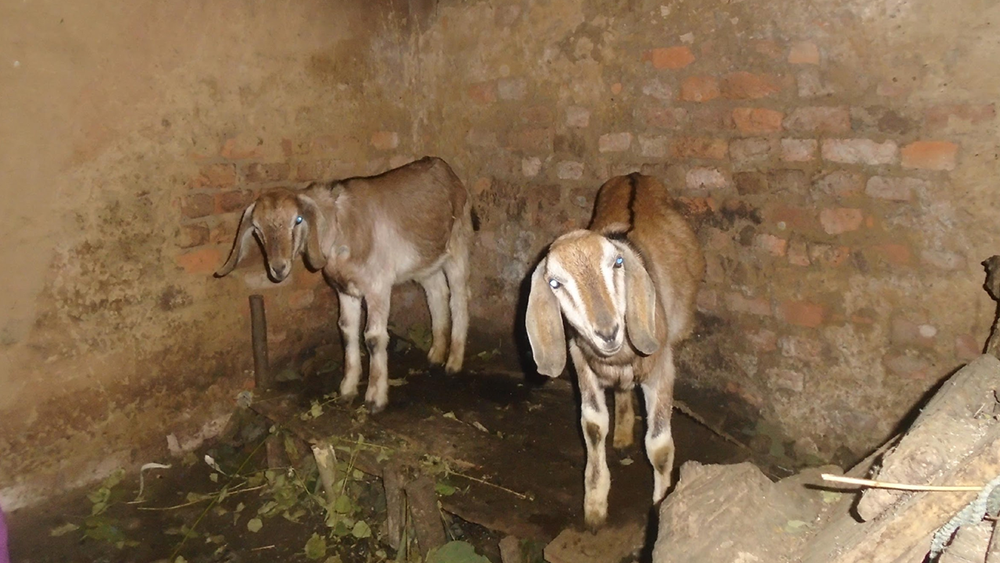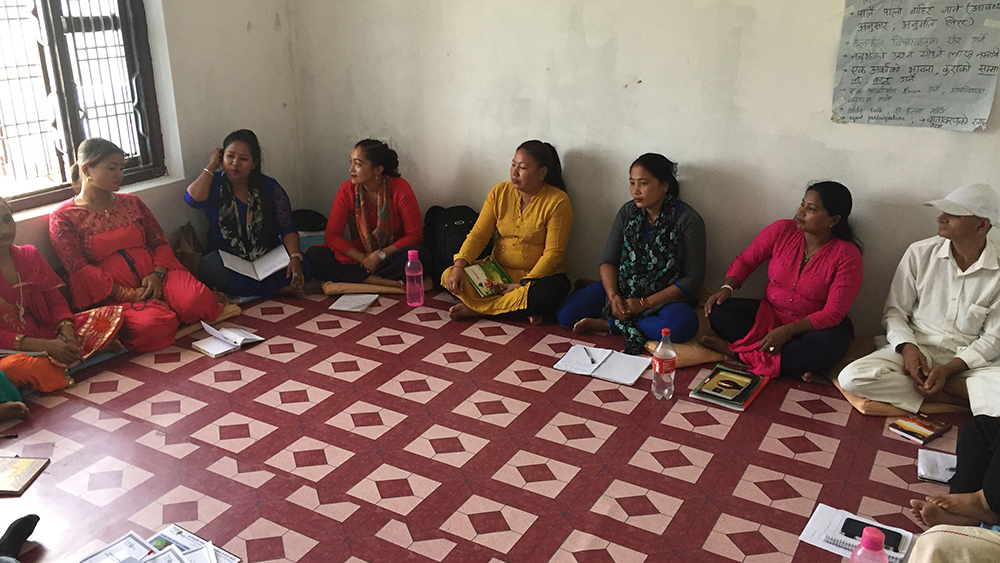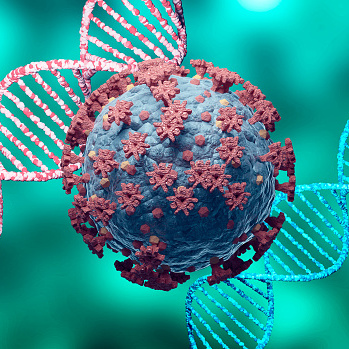Article Highlights
-
Problem Management Plus (PM+) is a treatment that can be delivered by people without mental health training to help ease distress and possibly reduce the risk of developing more serious symptoms.
-
Researchers who had been studying PM+ in Nepal brought it to New York City in spring 2020 to help people who were disproportionately affected by COVID-19.
The early stages of the COVID-19 pandemic were devastating to New York City. Between March and May of 2020, more than 200,000 cases of COVID-19 were confirmed in the city — and that’s not counting unconfirmed cases due to a scarcity in testing. Thousands of people died, and many more lost their jobs. It was a scary time for people who lived there.
Brandon Kohrt, M.D., Ph.D., an anthropologist and psychiatrist at George Washington University in Washington, D.C., studies how to help people take care of their mental health during and after disasters and other difficult life events. For years, he had been studying short-term mental health treatments in the country of Nepal. He and his colleagues saw an opportunity to bring the lessons from Nepal to New York, and they received funding for their project from the National Institute of Mental Health (NIMH) to do so in the early phases of the COVID-19 pandemic.
Now, Kohrt and his colleagues are working on a new five-year project on treating mental distress among vulnerable populations in New York City, also funded by NIMH. The project focuses on a five-session treatment plan that can help people move through difficult times. The researchers hope to show that the treatment could help many people in difficult circumstances, relieving distress and possibly reducing the risk of developing more serious symptoms. They hope that improving people’s mental health will also help them reduce their risk of getting seriously ill from COVID-19.

Brandon Kohrt, M.D., Ph.D., studies how to help people take care of their mental health in difficult times. Photo by Elsie Ebeling.

Brandon Kohrt, M.D., Ph.D., studies how to help people take care of their mental health in difficult times. Photo by Elsie Ebeling.
Origins in the Himalayas
The tiny Himalayan nation of Nepal, the home of Mount Everest and sandwiched between India and China, is one of the poorest countries in the world. In April 2015, an earthquake devastated the country, killing 9,000 people and leaving many more homeless — less than 10 years after the end of a decade-long civil war that spread violence and death across the country. Many people were experiencing loss and trauma. To help them, Kohrt and his colleagues began studying a treatment called Problem Management Plus (PM+) in Nepal, with support from the United States Agency for International Development (USAID).
PM+ is a short-term psychological treatment for adults created by the World Health Organization. It is meant to help people deal with difficult circumstances. The treatment recognizes that individuals may not be able to directly fix the biggest problems affecting them, such as natural disasters, war, or chronic poverty. The aim, Kohrt said, is for people to learn how to deal with distress: “We’re going to go through distress. How do we get through that distress effectively, so we’re not at risk of developing more serious problems?”
A key advantage of PM+ is that it can be delivered by people who are not mental health professionals. With just two weeks of training combined with ongoing supervision, the people delivering the treatment can be armed with the tools to help people get through difficult times. PM+ is not a treatment for serious mental illnesses. However, it can often help people with symptoms of depression, anxiety, and general psychological distress feel better. Kohrt’s research in Nepal found that PM+ reduced suffering, and other studies found similar results in Kenya and Pakistan.
Bringing PM+ to New York City
In the spring of 2020 and with supplementary funding from NIMH for their project, Kohrt and Adam Brown, Ph.D., a colleague at the New School in New York City, partnered with the New York City Mayor’s Office to explore how PM+ could be used as part of the COVID-19 response. “We were able to reach out to the hardest-hit communities and community-based organizations to integrate this into what they were doing,” said Kohrt.
At the New School, postdoctoral fellow Manaswi Sangraula, who coordinated the Nepal PM+ study when she was working on her doctorate, and Kendall Pfeffer, a doctoral student in clinical psychology, adapted PM+ so it could be delivered remotely with videoconferencing software. First, they trained psychology graduate students who had not yet started their clinical training to deliver the treatment to fellow students. That initial work showed benefits of the treatment for reducing symptoms of depression and anxiety.
Then, with support from the New York City Mayor’s Office, they partnered with organizations like Brothers at PEACE, which provides mentoring for Black youth. The researchers trained mentors in PM+, teaching them skills they could integrate into their mentoring. The researchers also worked with the New York Theological Seminary, which has community-based church programs that connect with many low-income New Yorkers from racial and ethnic minority groups.
“The people who are trained in PM+ have shared life experience with the people they work with, which encourages more empathetic responses and more understanding” than they might experience with a provider who doesn’t share their background, Kohrt said.
The researchers also made it possible for people to spread the 80 hours of training over eight weeks so that they could fit it into their day-to-day lives. After they complete training and start seeing people who need help, the community-based helpers continue to be closely supervised for their first few cases.

Mental Health and COVID-19
NIH shares the latest information on mental health during the COVID-19 pandemic and NIH-supported studies and resources to help anyone who is struggling.

In Nepal, some people consider purchasing a goat a sign of recovery from mental distress. In New York, goals for recovery might include better diabetes management or reduced stress. Photo by Suresh B. K.

In Nepal, some people consider purchasing a goat a sign of recovery from mental distress. In New York, goals for recovery might include better diabetes management or reduced stress. Photo by Suresh B. K.
How to Measure Success
In the new study, Kohrt and the research team are partnering with more community-based organizations to deliver PM+ in coordination with the New York City Mayor’s Office of Community Mental Health. “This is a partnership with them to reach out to communities that traditionally have been left out of comprehensive mental health care,” Kohrt said.
The study is designed as a randomized controlled trial. Staff at some organizations will be trained in PM+, while staff at other organizations will continue their work as usual — doing anything from connecting immigrants to English classes to helping people find housing or navigate health care systems and referring people to mental health specialists when needed. The researchers will compare the progress of participants in these two groups to see how well PM+ helps people, particularly those with depression.
Kohrt and his colleagues will be evaluating how participants’ mental health changes over time. With guidance from their PM+ helper, each participant will choose their own individual measure of success, then measure their progress toward that outcome. Some of these goals may have downstream effects on COVID-19 risks. For example, some people might want to be able to better manage a chronic illness, thus reducing their risk of getting seriously ill if they get COVID-19. Others might want to reduce stress in their lives, making it possible to focus on important issues like figuring out how to get vaccinated. Still others might focus on more structural issues, like having a safe place for their children to play.

In Nepal, helpers discuss their PM+ experience in a supervision session. Photo by Brandon Kohrt, M.D., Ph.D.

In Nepal, helpers discuss their PM+ experience in a supervision session. Photo by Brandon Kohrt, M.D., Ph.D.
An Interconnected World
Kohrt had no idea that his work in Nepal was going to lead him to working with vulnerable populations in New York. “The pandemic showed us that we are truly a global society, and what happens in any part of the world is going to impact people elsewhere in the world,” he said. That is obvious for vulnerabilities, such as the way the virus and new variants have spread across continents.
But, he said, this project shows that the same is true for global strength: “These lessons learned in Nepal, in rural places where most people don’t have more than a fifth-grade education and most don’t have electricity — what was developed and strengthened and refined in that setting has great applicability in urban New York City.”
Sources
- Jordans, M., Kohrt, B. A., Sangraula, M., Turner, E. L., Wang, X., Shrestha, P., Ghimire, R., van’t Hof, E., Bryant, R. A., Dawson, K. S., Marahatta, K., Luitel, N. P., & van Ommeren, M. (2021). Effectiveness of Group Problem Management Plus, a brief psychological intervention for adults affected by humanitarian disasters in Nepal: A cluster randomized controlled trial. PLoS Medicine, 18(6), e1003621. https://doi.org/10.1371/journal.pmed.1003621
 An official website of the United States government
An official website of the United States government


